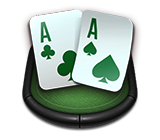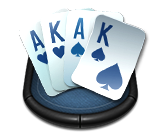
In the ever-evolving landscape of poker, something called the "Donk bet" has emerged as a critical element in contemporary play.
This article will explore its strategic applications, potential pitfalls, and its importance in modern poker. By the end, you will understand why mastering this technique is essential for elevating your game.
What is a Donk Bet?
The term "Donk Bet" might sound informal, but it represents a sophisticated and strategic move. This type of bet occurs when a poker player who is out of position leads with a bet into the previous street’s aggressor on the subsequent betting round.
Traditionally, the aggressor in the previous round is expected to continue their aggression. By leading out with a bet, the Donk Bettor disrupts this expectation, often causing confusion and forcing the aggressor to make tough decisions.
The Origins and Evolution
Historically, this way of betting was considered a sign of inexperience or poor play. It was named somewhat derogatorily, implying that the player making such a bet was a "donkey," or an unskilled player.
However, as poker strategy has matured, so has the understanding of the Donk Bet's utility. Today, it's recognized as a powerful tool that can be used to gain an edge over opponents who are overly reliant on conventional betting patterns.
Strategic Applications of the Donk Bet
Breaking Aggression: One of the primary uses of a Donk Bet is to disrupt the flow of an aggressive player. By betting out of position, you can seize control of the hand, forcing the aggressor to reevaluate their strategy. This can lead to mistakes or induce folds from hands that might have continued with aggression.
Information Gathering: A well-timed Donk Bet can serve as a probing bet, providing valuable information about your opponent’s hand strength. If the opponent raises, it might indicate strength, whereas a call or fold could suggest a weak hand or a drawing hand.
Balancing Your Range: Incorporating Donk bets into your strategy helps balance your range. By leading out with both strong hands and bluffs, you become less predictable and harder to play against. This balanced approach keeps your opponents guessing and prevents them from exploiting your tendencies.
Exploiting Specific Opponents: Against opponents who frequently c-bet (continuation bet) or those who are particularly tight, this can be especially effective. It puts pressure on them and can lead to profitable situations where they fold to your aggression.
Betting Frequency and Range
Understanding when and how often to employ the Donk Bet is crucial for its effective use.
Betting Frequency
The frequency with which you should donk bet depends largely on the dynamics of the game and your opponents. Too often, and it can make you predictable and exploitable. Instead, use it selectively in situations where it can generate maximum value.
For instance, against aggressive opponents who consistently c-bet, donk betting more frequently can disrupt their flow. However, against more cautious players, using it sparingly might be more effective to ensure it retains its element of surprise.
Donk Betting Range
Your donk betting range should be balanced and varied to keep opponents guessing. A strong donk betting range includes:
Value Hands: Strong made hands that can withstand aggression, such as top pair with a good kicker, sets, or strong two-pair hands.
Semi-Bluffs: Hands with significant equity that can improve on later streets, such as strong draws (flush draws, straight draws, or combo draws).
Pure Bluffs: Occasionally include hands with little to no showdown value to balance your range. This makes it harder for opponents to put you on a specific hand and increases the likelihood of them making mistakes.
By incorporating a mix of these hands into your donk betting range, you make it challenging for opponents to exploit you and can effectively leverage the confusion and pressure the donk bet creates.
Potential Pitfalls
While the Donk is a powerful tool, it’s not without risks. Misusing this technique can lead to significant losses:
Overuse: Overusing Donk bets can make you predictable and exploitable. Skilled opponents will catch on and adjust their strategies to counteract your aggression.
Lack of Post-Flop Plan: Betting out of position requires a solid plan for future streets. Without a clear strategy for the turn and river, you may find yourself in difficult situations against experienced players.
Hand Reading Skills: Effective Donk betting requires strong hand-reading abilities. Misjudging your opponent's range can result in costly mistakes.
Honing Your Donk Bet Skills
To effectively integrate Donk Bets into your poker arsenal, it’s essential to practice and refine this technique. Here are some tips:
Study Situations: Analyze hands where Donk bets could be effectively employed. Look for scenarios where you can disrupt your opponent’s plans and seize control of the hand.
Balance Your Range: Practice making Donk Bets with a balanced range of hands, including strong holdings, semi-bluffs, and pure bluffs. This balance will keep your opponents guessing.
Observe Opponents: Pay close attention to your opponents' tendencies. Identify players who are vulnerable to Donk Bets and tailor your strategy accordingly.
Seek Feedback: Engage with poker communities, study groups, or coaches to get feedback on your Donk Betting strategies. Learning from others can accelerate your improvement.
Conclusion
The Donk bet, once seen as a sign of poor play, has evolved into a sophisticated and valuable technique in modern poker strategy. By mastering the art of the Donk Bet, you can gain an edge over your opponents, disrupt their plans, and elevate your overall game. Remember, like all poker strategies, the key to success lies in balance, observation, and continuous improvement. So, embrace the Donk Bet, refine your approach, and watch your poker performance soar.

.webp)




























